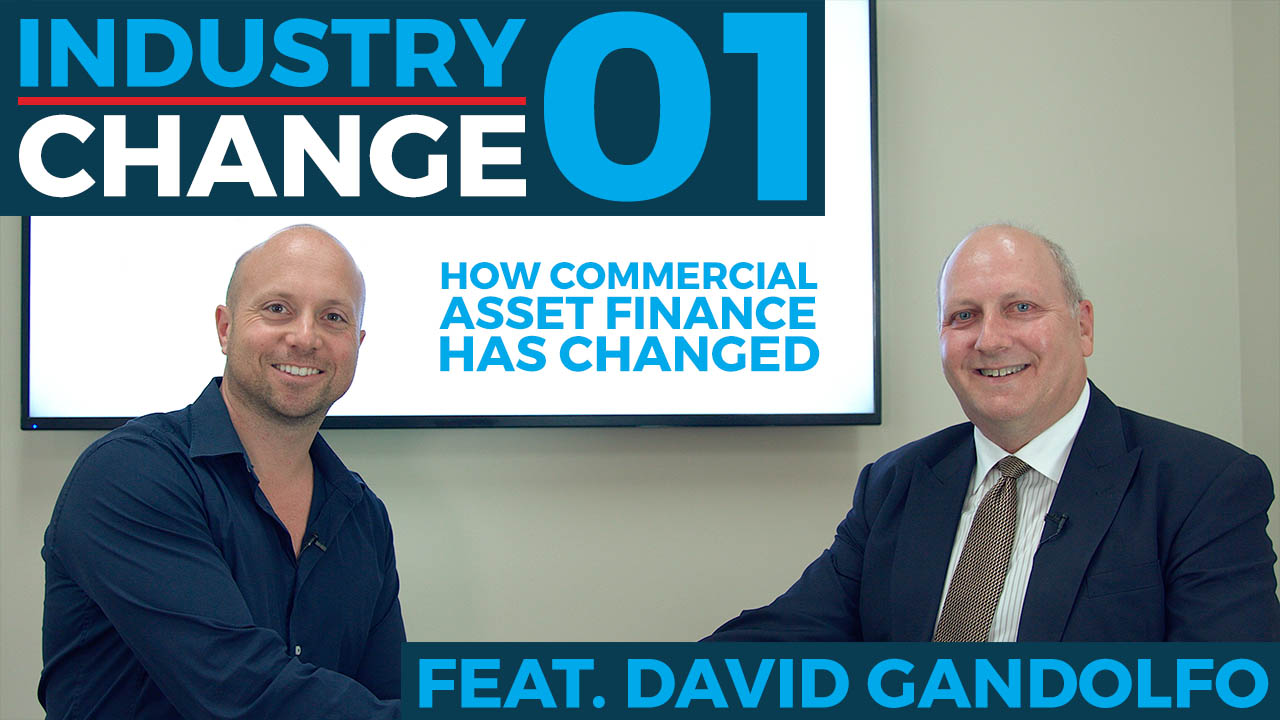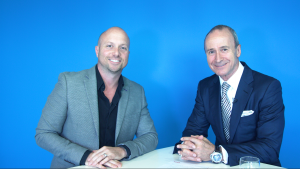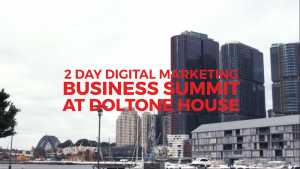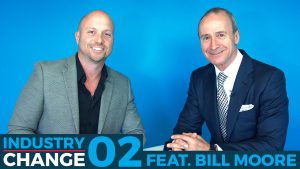This week I am excited to launch our new, show Industry Change, hosted by Richard Toutounji. This show is dedicated to interviewing industry leaders on changes that are occurring in their specific industry. We’re talking to masters of business who have prospered by adapting to changes in their industry.
I’m proud to announce that our first guest is President of CAFBA, David Gandolfo. The Commercial Asset Finance Brokers Association Limited (CAFBA) is an industry body of professional leasing/finance brokers who represent the interests of its members by assisting with regulatory, governmental matters, bank and finance companies issues. CAFBA continues to proactively lobby governments at all levels on behalf of its members to create changes in the industry that will benefit members.
To watch the interview in full click on the video above.
Video Transcription
Richard T.: Hello, welcome back, it’s Richard Toutounji and welcome to Industry Change, powered by COM. And today, I thought, what a better opportunity then to really talk about going deep into an industry and today I’ve got the president of CAFBA, David, welcome.
David Gandolfo: Good day, Richard. How’re you going?
Richard T.: Good to meet you. And David, I’m really proud that you’re on the show today because I think your industry has totally changed and continuing to change and we’re talking about finance, we’re talking about assets. Explain to us what your industry does.
David Gandolfo: Okay. I’ll explain first what the industry association does, of which I’m president. CAFBA stands for Commercial Asset Finance Brokers Association of Australia, which is a mouthful, you say.
Richard T.: That’s why I’ve got you to explain it, yeah.
David Gandolfo: Yeah, no. Perhaps it’s better if I say that. And asset finance is the market where it’s commercial, it’s for business owners. We provide, our members provide finance for business owners to purchase or acquire plant machinery, equipment, infrastructure, fittings, production equipment, trucks, transport, all that kind of equipment. So, and that market, nationally in Australia is worth about 100 billion dollars in receivables at any given time and about 40 billion dollars a year of new business is written each year about 60% of that business is written by asset finance brokers.
Richard T.: Right.
David Gandolfo: So, they’re not our figures, they’re independent figures. So, it’s a very significant part of the economy and finance isn’t actually just about money, finance is about being an enabler. So, asset finance is a means by which businesses get the machinery and equipment and assets that will help them to grow their businesses and then subsequently prosper into a … Employ and prosper.
Richard T.: And I think the whole focus on growth, you know, when we look at change, growth is really important for any change in an industry.
David Gandolfo: Yeah, absolutely.
Richard T.: And having the backing to make sure that you can invest in more resources, more products, more service, more equipment to make sure you can actually get that done and deliver results for your [inaudible 00:02:14].
David Gandolfo: Oh, absolutely, and access to finance is paramount and there’s a lot of small to medium sized businesses that don’t always have good access to finance and we try to be the intermediary or the enabler who can provide.
Richard T.: Let’s touch on that, because we have a lot of small businesses that we work with and when you said it’s tough to get finance to some small businesses, it is tough to get finance to some small business. How does your industry overcome those things?
David Gandolfo: Well, what we are qualified and experienced in doing is being the conduit between the borrower and the bank and it may not be a bank, it could be a finance company, it could be a FinTech, it could be a second-tier lender, it could be private equity, but we … It’s our job to know where to go, so if the borrower, the business owner has a requirement of any sort, that’s our job to know what the solution is to whatever their issue or their problem is, so … And we do that simply by our own experience and market expertise and CAFBA as an organisation-
Richard T.: Yep.
David Gandolfo: Has a number of those lenders and banks as associate or affiliate members and we engage very heavily at senior levels with all of them.
Richard T.: I really like that, because when you’re running a small to medium sized business, the focus is obviously business. The focus is your clients, the focus is maintaining and to achieve growth, yes, you do need to get finance at some stages of that growth and the easy way to do that is the [inaudible 00:03:36]. And you mentioned your organisation is associated with affiliates, with partners. You mentioned before, you’re always lobbying, you’re in the US, you’re continually educating and making sure that your members have the best processes to go about and facilitate that.
David Gandolfo: Oh, absolutely. And that lobbying isn’t just about processes, it’s about making sure that there’s correct regulation and if there’s any regulation that is about to be proposed, that it’s going to benefit borrowers and benefit us without impeding the ability of businesses to access finance and, but, at the same time, make sure there are measures in place to protect business owners and borrowers from unscrupulous practises.
So, and then we internally self-regulate and we have a very high membership standard, which is a probity standard, an education standard, qualification standard, which actually exceeds the ASIC standard for credit licencors.
Richard T.: Is that right?
David Gandolfo: Yep.
Richard T.: I’m really interested about change and how change has affected your industry and what you had to do to overcome the change and you mentioned, it’s big on assets, so I’m assuming that the mining boom would have affected lending and so forth. So, can you talk about that, the change that you’ve had to go through?
David Gandolfo: Absolutely. We are … Our industry is an exact reflection of what is going on in the marketplace and it’s an immediate reflection of what’s going on in the marketplace. So, as an industry, asset finance is a very, very good barometer of business confidence and business activity, because we know straight away whether confidence is up or confidence is down, and even the morning after a federal budget, if there’s a change like the instant asset write off, we know whether it’s been effective or not because our phones ring accordingly.
So, and in terms of the types of assets that we finance and I’ve been doing this for 30 years, just as an example, we used to do a lot more, as an industry, a lot more manufacturing equipment than we do. Manufacturing in Australia has change. We now do a lot more warehousing distribution equipment than we used to do.
Richard T.: Interesting.
David Gandolfo: Because a lot more things are imported. Certainly during the mining boom, there were members of … CAFBA is an umbrella organisation that represents member asset finance broker firms, so I’m talking about the individual firms, but a lot of our firms, particularly in the west and in Northern Queensland were run off their feet during the mining boom financing plant and equipment for mining and secondary industries in support of associated industries, even tradespeople and people who were working in those areas.
Richard T.: Sure.
David Gandolfo: But that’s come off substantially and those areas are now … In fact, there was a lot of re-financing of that equipment. A lot of it was funded on short term high cash flow facilities and a lot of people ran into issues with their banks on cash flow when the mining boom slowed down and we were able to, a lot of our members were able to refinance that equipment, because those businesses are still going but they simply don’t have the cash flow that they used to have.
Richard T.: Yeah, so everything’s changed.
David Gandolfo: Yeah. It’s not just our role to write the business, it’s also our role to manage the business and to manage the expectations of the customer and make sure that they’re able to adjust to any changes which impact on them as well.
Richard T.: Well, let’s talk about that. I love to understand what’s happening in the future, like everybody does. If we understand what the future is, we’re probably very rich and we can predict it. But I do believe as a president of an industry, you must have a system or some process to preempt change. What are your secrets to understand when change is happening and how are you going to shift to make sure you can stay ahead?
David Gandolfo: As an industry leader I try to … And my board, we try to have as high a vantage point as we possibly can, so we engage with Canberra and we’re actually quite involved in lobbying in Canberra, on our own behalf or on behalf of our members. We, as you mentioned in your opening comments, we go to the US once a year to the ELFA conference, which is sort of like the Superbowl of asset finance worldwide and we see trends that are emerging there, and certainly if they emerge there then they’re going to come here. We keep an eye on technology to engage very heavily with all of our financiers and partners and so we get a collective view or idea of what’s going to happen going forward and of course we have to adjust to that and we have to provide the means by which our member firms can adjust to that as well, and that …
Those can be industry changes, like electronic signing of documents, electronic identification of customers, that sorts of things. They can be regulatory changes, like changes to anti-money laundering laws that we have to adjust to. Privacy laws, those sorts of things. And they could be external factors, like, outside of asset finance, perhaps changes in the FinTech space and whether or not they’re a threat to us or not or whether we work with them, as it turns out we do, so, those sorts of things. But you’ve got to be aware of all of those kinds of things.
Richard T.: I like that, I mean, you even mentioned electronic signatures, signing, we’re talking about … And it’s great, and I think that’s where industries are … I think is the missing link for its members, is because there are some micro changes always happening in every industry and if we miss out one or two, three four five six smaller adjustments-
David Gandolfo: That’s absolutely right.
Richard T.: The business looks totally different.
David Gandolfo: Yeah, that’s absolutely right-
Richard T.: [inaudible 00:08:54]
David Gandolfo: A lot of these things happen over time.
Richard T.: Yes.
David Gandolfo: And individually they don’t mean a lot, but in concert, they mean a hell of a lot.
Richard T.: Yeah, that’s a very good point. Very good point. We think the small stuff doesn’t matter, but the small stuff does matter.
David Gandolfo: I’ll tell you one thing, though, that perhaps differentiates us from dealing directly with the bank, is that all of the brokers or broking firms are private businesses themselves, so they’re small businesses. So, I’m a business owner and as a business owner, I’ve got a better understanding of how your business operates. Not saying anything against the bank, but one of the main differences between ourselves and perhaps the bank … We get our funding from banks, so I’m not knocking them, but your businesses banker has a broad range of knowledge of a broad range of products, but perhaps not the depth of knowledge of all of them.
We don’t try to pretend to sell insurance or life insurance or financial planning or any of those sorts of things, most of our members are wholly and solely focused on commercial asset finance and that’s been their career and they’ve come out of banking and finance and that is their area of expertise and there’s an awful lot of things that you need to know. It’s not just about car finance, that’s 101. It’s … We do things where we’re financing pieces of equipment that are on time payment plans coming out of Europe, where we’ve got to organise the shipping, the funding for deposits in foreign currencies, foreign currency hedging. We’ve got to get them here and make all the shipment payments along the way, all those sorts of things. We do all that sort of stuff and that’s highly specialised.
So, the range of things that we do on a day to day basis ranges from one off motor vehicles, but most of our client relationships are relational, not just transactional, being that most business owners have an ongoing requirement for transport, for argument’s sake, the fleet is currently being turned over and we’ve got to have facilities in place with a range of lenders so that the best rate that’s out there is always available to them and the most appropriate facility.
So, there’s a lot to it, and so, we specialise and our members are able to offer a value add which is far and beyond just being able to offer good finance [inaudible 00:11:06].
Richard T.: I mean, I like that it. It is about, I think, this day and age, with so much competition and different things coming in to the marketplace, the confusion sets in and it’s like, everything can look the same. But I really believe the future is also in micro-communities and micro-industries, because then you know what you’re getting, you know the value, you know the research that’s put in before the decision is made and before it’s on offer.
David Gandolfo: I think [inaudible 00:11:31] distribution changes quite a bit and there’s a lot more availability of finance online and there’s some very quick finances available online. There’s a core of business owners and operators who want to be able to talk to a person who they get to know and that’s what our role is.
Richard T.: Interesting. So, we’re going back. We do a lot with marketing here at COM and we focus a lot heavily on finding someone’s business problem, if it’s cash flow, it’s staffing, if it’s culture change and then a lot of our toolkit comes down to marketing. There are some industries that have been disrupted so much with the technology, especially when they’re going straight to consumers, but it sounds like, to your industry, it’s really about trust and I don’t think anything’s changed here.
David Gandolfo: No, no.
Richard T.: Trust will always be here and trust is always in the future.
David Gandolfo: Absolutely, yeah, and longevity.
Richard T.: Longevity. And speaking of that, what is … Is that where the best marketing sources are coming from your members? Is it through a trust, through a referral process, or is it through new technologies and social media?
David Gandolfo: On a day to day basis, most of our members would meet their clients or get new clients through three main sources, and this has been the same for eternity. The direct marketing, and obviously that’s changed. Instead of just picking up the phone, there’s obviously social media and there are means by which you can contact people online.
Richard T.: Social media, online marketing kind of thing, correct? Yeah.
David Gandolfo: So, the platforms have changed, but the direct marketing as a source of business hasn’t changed.
Richard T.: Perfect.
David Gandolfo: And that includes the door knocking and the [inaudible 00:12:59].
Richard T.: Because I guess when people are knowing what they need, they definitely will do those searches online, Google and so forth.
David Gandolfo: Yeah, that’s right. So, we’ve got to be online and all of our members have go to have a marketing presence.
Richard T.: Yes.
David Gandolfo: And of course, your phone won’t ring if you don’t have that. And then of course, there’s referral at the point of sale, where our financing machinery, equipment, motor vehicles, trucks, transport, et cetera at the point of sale where those decisions to purchase are being made, we’re often there.
So, and of course if you’re selling a machine for, let’s say for argument’s sake, $500,000, we can convert that $500,000 capital expenditure to a, for argument’s sake, $5,000 a month or $10,000 a month monthly cost. So, and that, as soon as you start to quantify the benefit that that machine or what it’s going to save you or what it’s going to make you against it’s monthly cost, then you can very quickly determine whether it’s viable or not to go ahead and buy it. And then of course you plan your business [inaudible 00:13:55] around that.
So, the point of sale is very important as well. So, and the third source is professionals like accounting accountants and other corporate advisors.
Richard T.: Advisor referrals.
David Gandolfo: We get a lot of referral and we work in very closely, our members work in very closely with accountants and provide them with all of the documentation so they can … And then sometimes we provide them with the interest amortisation schedules, all the other documentation that they need to prepare their statements and annual returns.
Richard T.: I like that, and I think this whole process, even if it’s social media, it’s referrals, it all comes down to trust at the end of the day because they’ve got to trust that-
David Gandolfo: Trust and relationships.
Richard T.: Yeah. They’re a CAFBA member, they know what they’re doing, they’re backed by industry and I really think that’s where … I think, personally, that’s where the future of marketing is going is making sure that we have enough trust in somebody, they have the regulations, they have the qualifications, they’re backed by industry, they’re keeping updated with the trends.
David Gandolfo: But because of that, our industry is not very transient. People are in it for the long haul, so it’s a career, it’s not just something you move into. Out of sales, into this, something else. Asset finance, you need to know what you’re doing, you simply would fail if you don’t, against a market that is highly qualified and highly capable.
Richard T.: I like that. One more question, I know you’ve got run off [crosstalk 00:15:11] shortly.
David Gandolfo: No, that’s alright.
Richard T.: Let’s talk about education and where do you see education, and you mentioned before, there’s a process around a very male dominant industry and you’re re-educating that, can you go in a bit more detail on that for me?
David Gandolfo: Certainly. There’s a couple of aspects to education which are really, really important and I’ll address the first one that you just asked me there, yes, our industry is primarily older male dominated and it’s funny when you go to the US and to other markets, it’s exactly the same.
Richard T.: Is that right, yeah?
David Gandolfo: So, what we’re trying to do is to fix that gender imbalance and we’re very, very proud of the scholarship programmes that we run through CAFBA, which are sponsored by our lenders but which we organise, to get more females, not just into the industry, but the females who are in the industry out of secondary roles, into primary roles so that they become business writers and brokers and owners of broking firms, rather than working for broking firms. Because they’re there and they’re very, very capable, but we want to change that gender imbalance.
We’ve also … The education piece puts us into, we’re working on programmes to go into universities and colleges and make graduates aware of this industry, this fabulous industry that no one’s ever heard of. Everyone’s heard of financial planning and mortgage broking and insurance and stockbroking and those sorts of things, very few people have heard of asset finance but it’s a big business, so we’re trying to get a programme into universities where we can get graduates or undergraduates interested in asset finance so they’ll identify it as a career, so there’s regeneration with our industry doing that.
But also, education’s really, really important from our point of view, to up-skill our members and to make sure that the value proposition to customers and the advice that they’re giving people and the products that they’re arranging are highly appropriate. So, education on a range of levels is extremely important.
We also use … We have a minimum education standard within our membership and quite deliberately, we over a period of years have been quite happy to drop off anyone who doesn’t want to maintain that because we want the baseline of the industry to be high and we’re quite unashamed about that.
Richard T.: No, that’s important and what we do at COM here is once they … We’ve got the big business problems, I think education is the future, and if you can not stay educated into the trends and the growth, that’s where people start to look at, “Okay, who else on the marketplace?”
David Gandolfo: Oh yeah, no, we work closely with RTOs, training organisations, and we have programmes and diplomas which are appropriate for what we do, but we’re also working on new programmes and expanding those.
Richard T.: Great.
David Gandolfo: Yeah.
Richard T.: Excellent. Very interesting. Thanks, David, thanks for coming along for the Industry Change programme.
David Gandolfo: [crosstalk 00:17:53] pleasure, thank you.
Richard T.: Appreciate that, and let us know about where can people maybe just to plug your website, where can people find your organisation?
David Gandolfo: Oh, very simple. It’s CAFBA, C A F B A dot com dot AU, that’s the industry association. Then, of course, the list of CAFBA members is there.
Richard T.: [inaudible 00:18:08].
David Gandolfo: Yeah, to look at, and the phone number is 1 3,000 CAFBA.
Richard T.: 1 3,000 CAFBA.
David Gandolfo: Yeah, very easy. Yes.
Richard T.: Awesome, thanks so much David.
David Gandolfo: Thank you very much, you too.
[fl_builder_insert_layout id=”6142″]





